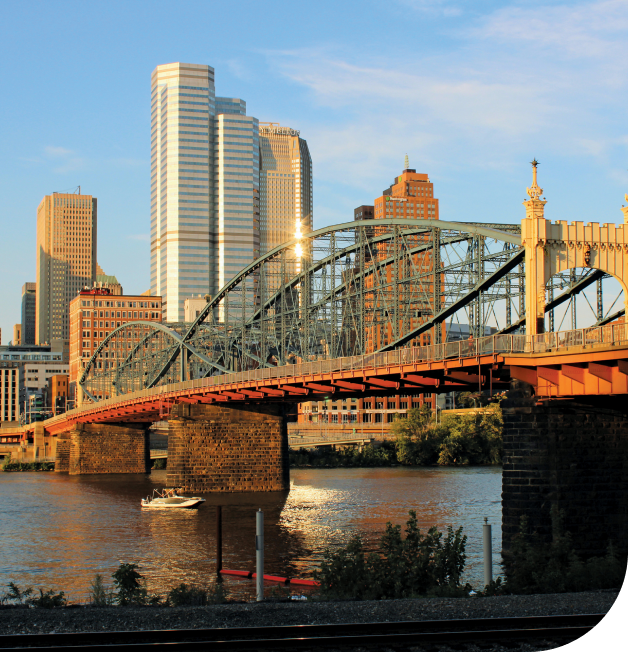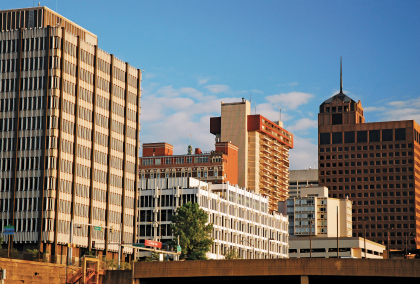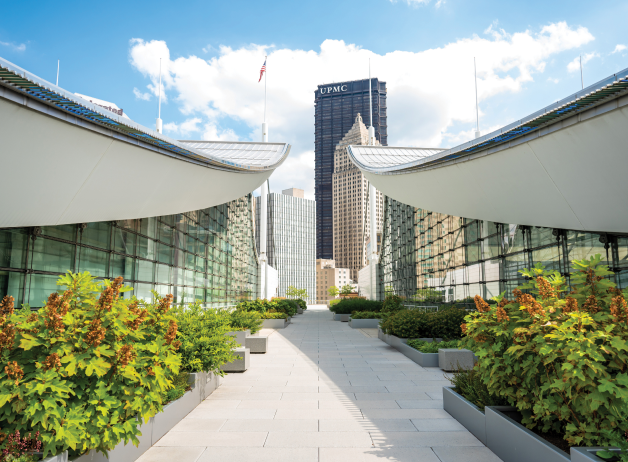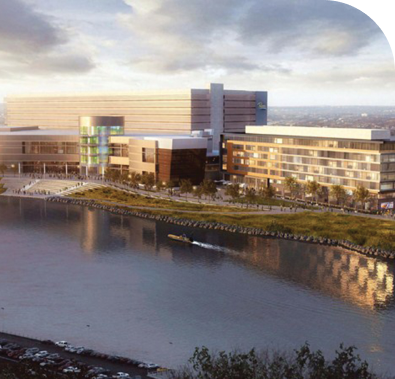
Strategy: Industry

Workforce
Among key business issues facing tourism destinations in recent years is the limited supply of a skilled and trained hospitality workforce. Over the last 10 years, Allegheny County lost 11% of its tourism employment- more than double the loss in the Commonwealth of Pennsylvania. This trend is projected to continue over the next 10 years with the region’s tourism employment expected to decrease by 7% while the Commonwealth and the nation are expected to see 8% and 17% increases, respectively.
The decline in labor is largely attributable to a sizable share of outbound migration of labor to areas like Westmoreland County, Washington County, and Butler County. Without concerted efforts to retain, enhance, and grow the tourism and hospitality workforce in Allegheny County, the destination will risk losing the supply of tourism assets and businesses that drive the visitor economy.
CASE STUDIES

Downtown Memphis Tourism Development Zone (TDZ)
Located in a tourism development zone, the Peabody Hotel in downtown Memphis received approval to create a 5% surcharge for guests on all goods and services that is expected to generate more than $25 million for renovations and improvements over thirty years. Renovations will include the construction of new dining areas, a lobby refresh, and the remodeling of all guest rooms. Tourism development zones are state-enabled tax districts/neighborhoods whose sales taxes (both state and local taxes) are set aside in a TDZ fund to be used specifically on major tourism projects.

Businesses
The consumer-facing business ecosystem in Pittsburgh is critical to a visitor’s experience of the destination. For any visitor trip, travelers are bound to spend money at local retailers, restaurants, and various other businesses. Today, however, the consumer purchasing journey begins long before a visitors’ arrival at a destination. In fact, many travelers are researching places to eat or shop before making travel decisions so it is critical that Pittsburgh’s small and local business environment is rapidly evolving to keep up with consumer trends and preferences in order to remain relevant and attractive to visitors.
CASE STUDIES

Downtown Memphis Tourism Development Zone (TDZ)
Located in a tourism development zone, the Peabody Hotel in downtown Memphis received approval to create a 5% surcharge for guests on all goods and services that is expected to generate more than $25 million for renovations and improvements over thirty years. Renovations will include the construction of new dining areas, a lobby refresh, and the remodeling of all guest rooms. Tourism development zones are state-enabled tax districts/neighborhoods whose sales taxes (both state and local taxes) are set aside in a TDZ fund to be used specifically on major tourism projects.

Governance
The ability to implement the projects outlined in this plan is directly related to the capacity of VisitPITTSBURGH and various other partner organizations that have the staff, expertise, and resources to advance strategies toward implementation. The following strategies are focused on building internal capacity and plan oversight at VisitPITTSBURGH and providing training and expertise to local leaders who ultimately serve as managers and ambassadors of the destination.
CASE STUDIES

Downtown Memphis Tourism Development Zone (TDZ)
Located in a tourism development zone, the Peabody Hotel in downtown Memphis received approval to create a 5% surcharge for guests on all goods and services that is expected to generate more than $25 million for renovations and improvements over thirty years. Renovations will include the construction of new dining areas, a lobby refresh, and the remodeling of all guest rooms. Tourism development zones are state-enabled tax districts/neighborhoods whose sales taxes (both state and local taxes) are set aside in a TDZ fund to be used specifically on major tourism projects.
